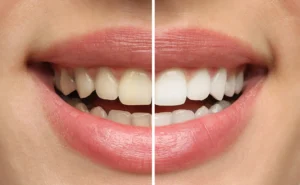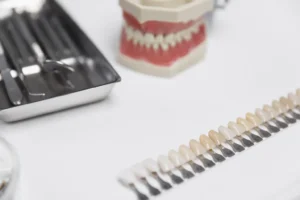Table of Contents
Dental health is crucial for overall well-being, yet many people face a range of common dental problems at some point in their lives. These issues can cause discomfort, pain, and even impact a person’s confidence in their smile. Fortunately, most dental problems can be treated effectively if diagnosed early. At Billings West Dental, we help our patients address these issues with tailored treatment plans and offer solutions that fit within a range of budgets.
In this article, we will explore some of the most common dental problems, their treatments, and the associated costs so you can be better prepared to take care of your oral health.
Cavities (Tooth Decay)
What It Is:
Cavities, also known as tooth decay, are one of the most common dental problems. They occur when bacteria in the mouth produce acids that erode tooth enamel, creating small holes in the teeth. Cavities can cause sensitivity, pain, and infection if left untreated.
Treatment:
The treatment for cavities depends on their size and severity:
- Dental Fillings: For minor to moderate cavities, a filling is the most common treatment. The decayed part of the tooth is removed, and the cavity is filled with a material such as composite resin, silver amalgam, or porcelain.
- Root Canal: If the cavity has reached the tooth’s pulp (the inner nerve), a root canal may be needed to remove the infected tissue and save the tooth.
- Dental Crowns: If the tooth is severely decayed or weakened, a crown may be placed over the tooth to restore its function and appearance.
Cost:
- Dental Fillings: The cost of fillings can range from $100 to $300 per tooth, depending on the material used.
- Root Canal: Root canal treatment can cost between $700 and $1,200 per tooth, depending on the complexity.
- Dental Crowns: The cost of a crown typically ranges from $800 to $1,500 per tooth.
Gum Disease (Periodontal Disease)
What It Is:
Gum disease, also known as periodontal disease, is a serious condition affecting the gums and supporting structures of the teeth. It starts as gingivitis (gum inflammation) and can progress to periodontitis, where the gums pull away from the teeth, forming pockets that can become infected. If left untreated, gum disease can lead to tooth loss.
Treatment:
Treatment options for gum disease vary depending on the severity of the condition:
- Scaling and Root Planing: This deep-cleaning procedure removes plaque and tartar from below the gumline, helping to prevent further progression of the disease.
- Antibiotics: In some cases, antibiotics may be prescribed to eliminate the infection.
- Surgery: Advanced cases of gum disease may require surgical intervention, such as flap surgery or bone grafts, to restore gum health and prevent tooth loss.
Cost:
- Scaling and Root Planing: This procedure typically costs between $200 and $300 per quadrant (a quarter of the mouth).
- Gum Surgery: Surgical treatments for gum disease can range from $500 to $4,000, depending on the extent of the condition and the type of surgery needed.
Tooth Sensitivity
What It Is:
Tooth sensitivity occurs when the underlying layer of the tooth (dentin) becomes exposed, often due to worn enamel or receding gums. This can cause discomfort or pain when consuming hot, cold, sweet, or acidic foods and drinks.
Treatment:
- Desensitizing Toothpaste: Special toothpaste for sensitive teeth can help block the transmission of pain signals to the nerves.
- Fluoride Treatment: Our dentist may apply fluoride to strengthen tooth enamel and reduce sensitivity.
- Dental Bonding or Sealants: If the sensitivity is due to enamel loss or gum recession, a bonding agent or sealant can be applied to protect the exposed areas.
Cost:
- Desensitizing Toothpaste: Over-the-counter toothpaste for sensitive teeth typically costs between $5 and $10.
- Fluoride Treatment: In-office fluoride treatments can range from $20 to $50 per application.
- Dental Bonding: The cost of dental bonding can range from $100 to $400 per tooth.
Tooth Grinding (Bruxism)
What It Is:
Bruxism is the habit of grinding or clenching the teeth, often during sleep. Over time, this can lead to worn-down teeth, jaw pain, headaches, and even tooth fractures.
Treatment:
- Mouthguards: A custom-fitted mouthguard worn at night can help protect the teeth from damage caused by grinding.
- Stress Management: Since bruxism is often linked to stress, relaxation techniques or therapy may be recommended.
- Dental Restoration: If tooth damage has occurred, dental restorations such as crowns or veneers may be needed to repair the affected teeth.
Cost:
- Mouthguards: A custom mouthguard typically costs between $300 and $800, depending on the material and complexity.
- Dental Restorations: Crowns and veneers to repair worn or fractured teeth can range from $800 to $2,500 per tooth.
Cracked or Broken Teeth
What It Is:
A cracked or broken tooth can occur due to injury, biting down on hard foods, or tooth grinding. It can cause pain, sensitivity, and even infection if not treated promptly.
Treatment:
- Dental Bonding: For minor cracks or chips, dental bonding can be used to restore the appearance and function of the tooth.
- Crowns: For more severe damage, a crown may be placed over the tooth to provide protection and strength.
- Root Canal: If the crack extends into the tooth’s pulp, a root canal may be necessary to prevent infection.
Cost:
- Dental Bonding: The cost of bonding ranges from $100 to $400 per tooth.
- Crowns: The cost of crowns ranges from $800 to $1,500 per tooth.
- Root Canal: Root canal treatments typically cost between $700 and $1,200 per tooth.
Bad Breath (Halitosis)
What It Is:
Bad breath, or halitosis, can be caused by poor oral hygiene, gum disease, dry mouth, or underlying medical conditions. Chronic bad breath may indicate a more serious dental issue.
Treatment:
- Improved Oral Hygiene: Regular brushing, flossing, and tongue cleaning can help eliminate bacteria that cause bad breath.
- Treating Gum Disease: If bad breath is due to gum disease, treating the underlying condition will help improve breath.
- Saliva-Stimulating Products: If dry mouth is contributing to bad breath, saliva-stimulating products or medication may be recommended.
Cost:
- Oral Hygiene Products: Over-the-counter toothpaste, mouthwash, and floss can range from $10 to $30 for a complete set.
- Gum Disease Treatment: As mentioned earlier, the cost of gum disease treatment can vary based on the severity and treatment type.
Tooth Loss
What It Is:
Tooth loss can occur due to injury, decay, or gum disease. Missing teeth can affect both the function and appearance of your smile, as well as your ability to chew and speak properly.
Treatment:
- Dental Implants: Dental implants are a permanent solution to replace missing teeth. They involve placing a titanium post into the jawbone and attaching a crown on top.
- Bridges: A dental bridge can be used to replace one or more missing teeth. It is anchored to the adjacent teeth with crowns.
- Dentures: For those missing multiple teeth, dentures (either partial or full) can be used to restore the appearance and function of the smile.
Cost:
- Dental Implants: Implants typically cost between $3,000 and $5,000 per tooth.
- Bridges: The cost of a dental bridge can range from $1,500 to $3,000, depending on the number of teeth being replaced.
- Dentures: The cost of dentures varies depending on whether they are full or partial, with prices ranging from $1,000 to $3,000.
Conclusion
Maintaining good oral health is essential to avoid the discomfort and expenses associated with common dental problems. At Billings West Dental, we are committed to helping our patients understand the causes of common dental problems and offering effective, affordable treatment options. Regular dental check-ups, proper oral hygiene, and timely treatments can help prevent these issues from progressing into more serious conditions.
If you are experiencing any of these common dental problems or have concerns about your oral health, don’t hesitate to contact Billings West Dental. Our team is here to provide the care you need to maintain a healthy, confident smile!



